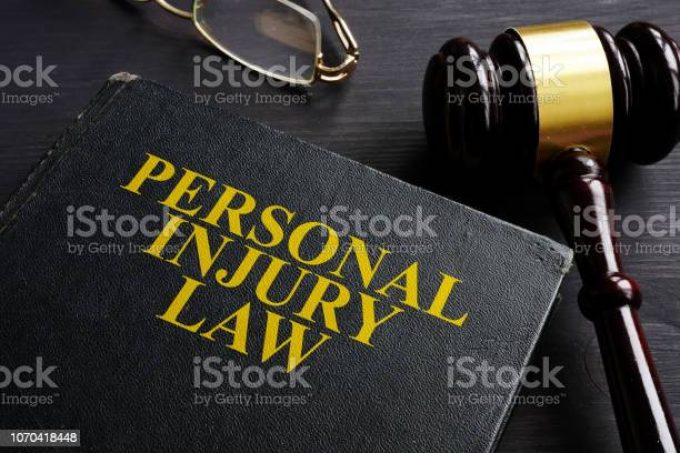If you have decided to file a personal injury claim, you should aim to obtain a reasonable settlement from the at-fault party. The insurance adjuster will relentlessly try to minimize the payout or even entirely deny your claim. Your job is to do everything in your power to maximize your benefit and make the best out of this settlement. This will ensure that you have enough funds to get the medical treatment you need and fully recover from your loss.
The steps you take after the accident will determine the integrity and value of your claim. The key is to highlight the strong points of your case, so that the weak points are automatically suppressed. Negotiating with the at-fault party’s insurer is never easy, but taking an out-of-court settlement is usually more feasible than choosing litigation.
Below are 5 tips to help you steer the case in your favor and attain fair compensation for your damages:
1. Work with an Attorney from the beginning
Many people think that they can file a claim and obtain a reasonable settlement without the input of a lawyer. Truth is that personal injury cases are complicated and claimants who appear without a legal representative are always disadvantaged. If you ask the insurer, they will probably tell you that you don’t need a lawyer; in reality, they don’t want you to hire one because it will be inconvenient for them. Professional and experienced lawyers know how to deal with bad faith insurance companies because they are aware of all their tricks and strategies.
If you are worried about legal fees, you should know that personal injury lawyers charge clients on a contingency basis – you don’t need to pay anything upfront. The lawyer will only take a small portion of your settlement; they don’t get paid if you lose the case. Most claimants do not even know the actual worth of their claim. To be precise, their damages have caused them a lot of pain and suffering, along with severe debt problems. They do not understand the seriousness of their injuries and how long it will take to recover completely.
When estimating the merit of your personal injury claim, you have to take account of money you have already spent, ongoing costs, as well as future expenses you can expect with relation to your injuries. Personal Injury Lawyer Houston, Texas, can help you determine the true value, so that you can walk away with the compensation you deserve.
2. Never grab the first offer
Most personal injury claimants are desperate for financial aid, thus do not feel ashamed if you are in a similar situation. Medical bills on top of lost income can become unbearable for the victim and their family. Under these circumstances, any offer from the insurance adjuster may sound tempting, even if it only covers a small fraction of your expenses. The at-fault party’s insurer is well aware of your condition; hence, they will try to benefit from it. Do not be thrilled if the insurer is quick to respond with what we call a ‘low-ball offer’.
The insurance adjuster is merely testing the waters with the first offer, and hoping that you take it out of pessimism and despair. Remember that once you accept an offer, there is no going back. You cannot later return and demand that the insurance adjuster grant you additional funds. The insurance company might tell you that your claim is weak and their proposed settlement is increasingly generous; do not believe these unfounded declarations. If they try to rush you into accepting a settlement by saying that you won’t get anything if you delay, don’t panic because these are false threats.
3. Preserve supporting evidence
The fate of your case lies with the jury that makes their judgment with respect to the evidence presented. The defendant’s decision to offer you a reasonable settlement or not also depends upon the soundness of your case. The judicial system always gives weightage to real evidence and facts, as opposed to theories. That is to say, the more you can do to preserve evidence, the better are your chances of winning the case.
If possible, snap photos of the accident scene and your immediate injuries. It is vital to compile a list of witness names and contact information. If a police report is available, you should obtain a copy of it. You may also keep a journal to record any other details related to the accident and injuries. Your lawyer can use all this material to build a strong case and guarantee a favorable outcome.
4. Do not withhold Medical Treatment
A personal injury settlement primarily entails financial compensation for physical or bodily damages. For this reason, you’ll need to portray a clear and complete picture of your injuries. Doctors and other healthcare experts will be required to document your injuries and develop a treatment plan. Verified medical records strengthen your case and convince the opposing party to come up with a reasonable settlement offer.
Whether your injuries seem serious or minor, do not refrain from immediate medical examination. More than often, victims do not realize the severity of their injuries at the time of the accident. Shock and adrenaline prevents them from acknowledging pain at the time, but dangerous symptoms emerge later. If the doctor prescribes a course of treatment, strictly adhere to it and do not miss follow up visits.
5. Maintain Confidentiality
Do not publicize the details of your personal injury case. The more you talk about it, the higher are the chances of revealing something suspicious. You should keep in mind that the opposing party and law enforcement are watching you closely. Anything you say about your injuries or the accident can be used against you. Anyone can manipulate your context and make you look bad. Therefore, it is in your best interests to stay off social media as well.


